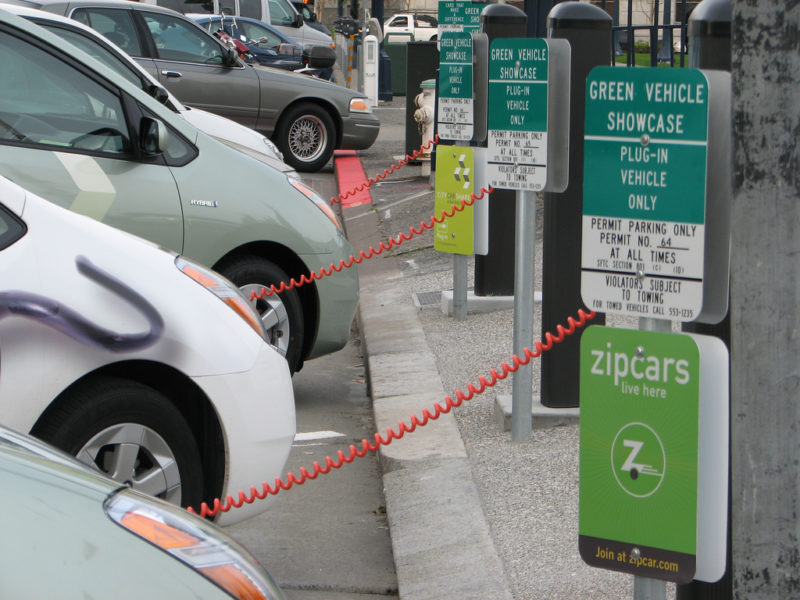JEFFERSON CITY, Mo. – Did the Missouri Public Service Commission get it wrong with the decision regarding electric vehicle charging stations?
A recent tweet from one of the commissioners indicates that he might believe so.
Great @Forbes article highlighting how @MissouriPSC got this issue wrong: https://t.co/yWfOvRREKb
— Scott Rupp (@Scott_Rupp) November 8, 2017
Across the U.S., the fight for electric cars and more environmentally friendly energy use is a hot button topic. Electric vehicles continue pushing for relevance in a gasoline-dominated market, but it’s been an uphill battle against the issue of range for the more locally-suited vehicles.
People still fear purchasing the electric vehicles, citing the lack of widespread options to “fuel” the vehicle as needed. And for a number of states, the issue of how to increase the availability of those charging stations is simply a matter of money.
Who should be paying for the electric vehicle chargers, and should they profit from them?
That was the subject in the recent Forbes article shared by Commissioner Scott Rupp. In the piece, the author outlines the fact that three states (Missouri, Michigan, and Kansas) have all turned down requests from utility companies to build electric vehicle charging stations with customers’ money.
The Missouri PSC turned down Ameren Missouri’s request for a pilot program to install and operate EV charging stations along I-70 and earn a return on charging infrastructure, saying they lacked the statutory authority to regulate charging stations.
“The Commission finds that EV charging stations are not ‘electric plant’ as defined in the statute because they are not used for furnishing electricity for light, heat, or power,” said the Commission. “EV charging stations are facilities that use specialized equipment, such as a specific cord and vehicle connector, to provide the service of charging a battery in an electric vehicle. The battery is the sole source of power to make the vehicle’s wheels turn, the heater and air conditioner operate, and the headlights shine light.”
Their decision noted that the charging service would be the product being sold, not the electricity used to power the system.
“By analogy, a laundromat uses electricity to provide clothes drying services, but that does not mean the laundromat’s dryers are electric plant, or that the laundromat should be regulated by the Commission. EV charging stations are not ‘electric plant’ and, therefore, the Commission lacks statutory authority to regulate their operation.”
So, the commission’s decision does not stop Ameren Missouri from owning and operating EV charging stations in Missouri, it simply prohibits profiting from them.
“Ameren Missouri may own and operate EV charging stations in Missouri,” said the Commission, “but it may only do so on an unregulated basis without including those charging stations in its rate base or seeking recovery from ratepayers for any of the costs associated with the construction or operation of those charging stations.”
The Kansas Corporation Commission denied a similar request from Kansas City Power & Light, saying that the environmental benefits and demand were not clear for charging stations, and that the private sector should invest in the electric vehicle market, not be financed by ratepayers.
However, other states have found some happy mediums, though the question of profit still remains.
The Forbes article outlines how California lifted a ban on the investment in charging station infrastructure, as well as explains how companies have started to raise money to finance and implement charging station construction throughout the state.
In Texas, only utilities are allowed to own and operate the stations, so companies have partnered with the utilities to supply the services and install them throughout the state.
But the real answers about the money may lie with Kentucky. That state’s solution allows utilities to charge only customers that use the system. The utilities can build the charging stations on commercial properties and get paid for placing them there. The cost for using the charging station is about $3 per hour.
When the Missouri PSC denied Ameren’s request, Commissioner Rupp was the lone vote dissenting.
To read the Commissioner’s full opinion on the matter, read the document attached below.
 Loading...
Loading...
Benjamin Peters was a reporter for The Missouri Times and Missouri Times Magazine and also produced the #MoLeg Podcast. He joined The Missouri Times in 2016 after working as a sports editor and TV news producer in mid-Missouri. Benjamin is a graduate of Missouri State University in Springfield.















